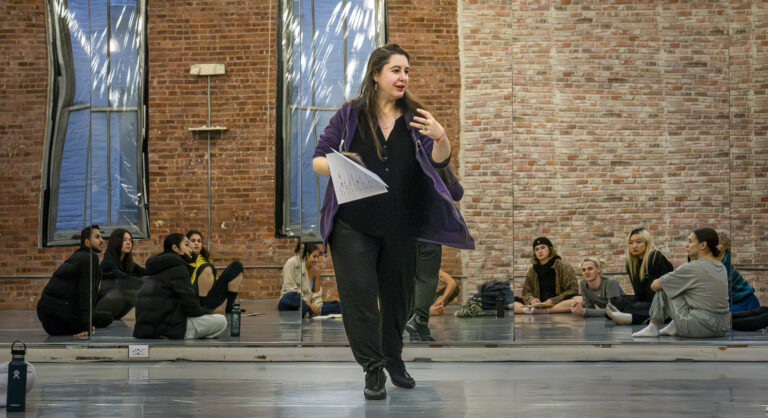
Securing the correct music licensing for your studio is an important step in creating a financially sound business. “Music licensing is something studio owners seem to either embrace or ignore completely,” says Clint Salter, CEO and founder of the Dance Studio Owners Association. While it may seem like it’s a situation in which it’s easier to ask for forgiveness rather than permission—that is, to wait until you’re approached by a music-rights organization before purchasing a license—Salter disagrees, citing Peloton, the exercise company that produces streaming at-home workouts. In February, Peloton settled a music-licensing suit with the National Music Publishers’ Association out-of-court for an undisclosed amount. Originally, NMPA had sought $300 million in damages from Peloton. “It can get extremely expensive,” says Salter. “It’s not worth it for a studio to get caught up in that.”
As you continue to explore a hybrid online/in-person version of your class schedule, it’s crucial that your music licenses include coverage for livestreamed instruction—which comes with its own particular requirements. Here are some answers to frequently asked questions about music licensing—in both normal times and COVID times—as well as some safe music bets that won’t pose any issues.
Q: Why do I need a music license in the first place?
“Anytime you’re playing a piece of music, the artist is owed something from that,” says Salter, “in the same way that studio owners get paid to deliver their artistry to students.” The price you’ve paid to download a song from iTunes, to belong to a streaming-service subscription like Spotify, or even to own a CD doesn’t mean you own the right to play a song publicly, says Jodie Thomas, executive director, corporate communications, of Broadcast Music, Inc. (BMI), one of the largest music-rights organizations in the U.S. “The price only covers the right to own the CD or download or subscription,” she says.
As a studio owner, you’ve probably purchased public-performance music licenses for your year-end recital through organizations like BMI and the American Society of Composers, Authors and Publishers (ASCAP). (You don’t need to purchase a license for every song you use, of course—but you need licenses from both BMI and ASCAP, as together they represent most copyrighted music in the U.S.) But have you thought about whether you’re covered in your virtual classes?
“The dance-studio license doesn’t include streaming,” says Thomas, “as it’s a license for physical locations.” A separate sync license—legal permission to use an artist’s copyrighted music in video or via streaming—is typically required for virtual content.
As the situation is constantly evolving, it is best to contact BMI directly if you have questions about how your license applies to virtual classes. “BMI has been working with business owners since the onset of the pandemic to ensure they can operate their traditional brick-and-mortar businesses online,” says Thomas. “We work closely with each individual case to help secure the most appropriate license needed.” BMI, for example, has been working with business owners since the onset of the pandemic to ensure they can operate their traditional brick-and-mortar businesses online.
Q: OK, so how do I get a music license?
Easily, actually—by completing an online licensing form from BMI.com and ascap.com, with information about your studio’s enrollment and class types offered.
Q: How much does a music license cost?
It depends on how many students take class per week at your studio. For example, in BMI’s contract, which is available online, studios with 60 or fewer unique students per week would pay a $177 annual fee, whereas a studio with 375-plus students would pay $933 per year.
Q: Aren’t I protected by fair use?
Under the U.S. Copyright Act’s fair-use doctrine, only the use of copyrighted material for nonprofit education is generally justified. As a for-profit business, you’re ineligible for fair use.
Q: I have a commercial music service agreement. Does that cover my use of music in classes, too?
A: No. A commercial music license only allows you to play background music—in your lobby or dressing rooms, for example—and does not cover the use of music in performance or classes.
Q: Is there any way for me to operate without a music license?
Yes, though it will require some creative thinking. “If a studio doesn’t have a music license with BMI, instructors can play royalty-free music, where the music is created and licensed specifically for, say, fitness instructors,” says Thomas. “Generally, these tracks include music ‘beats,’ not common or popular music.”




